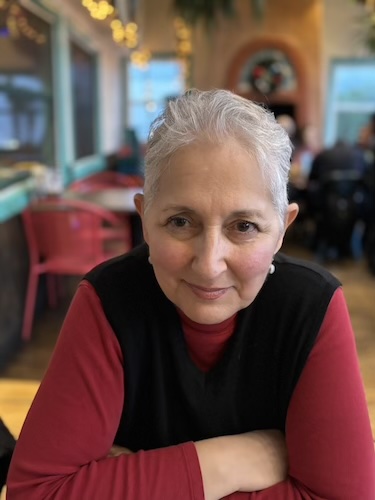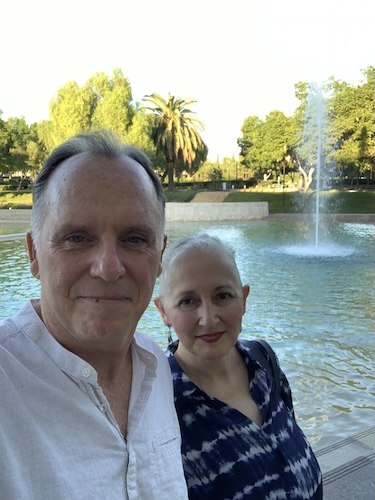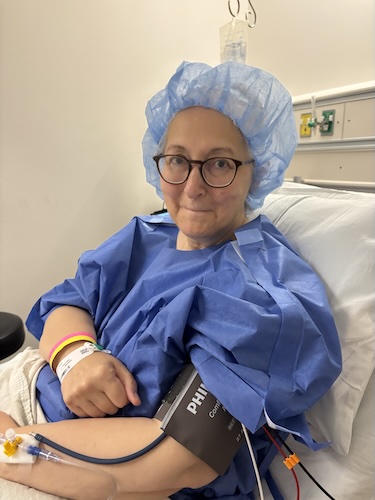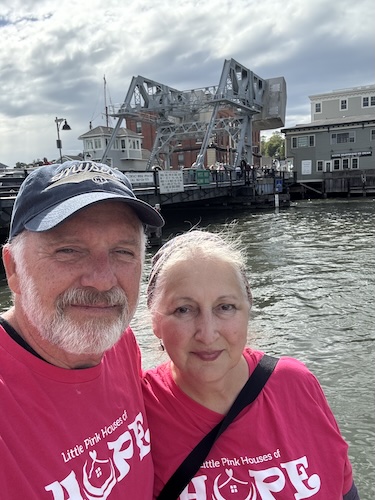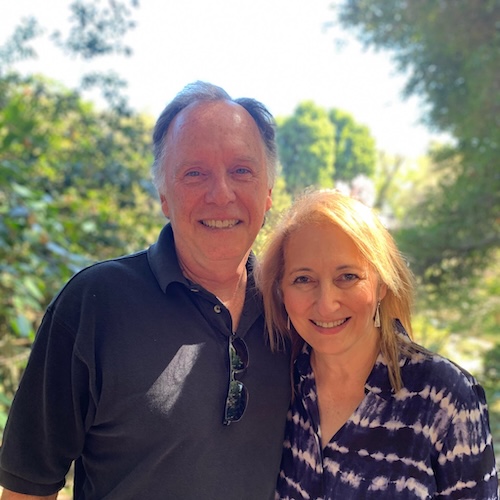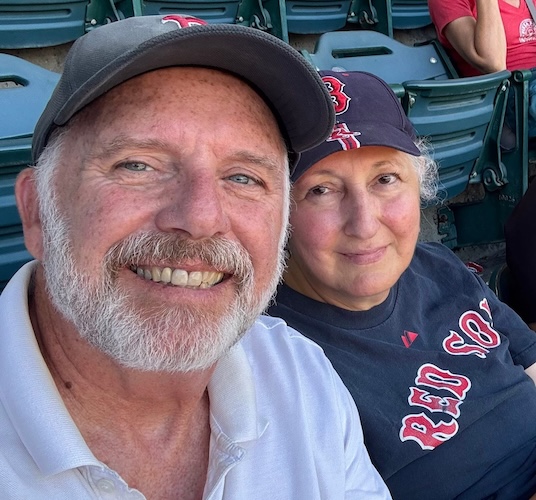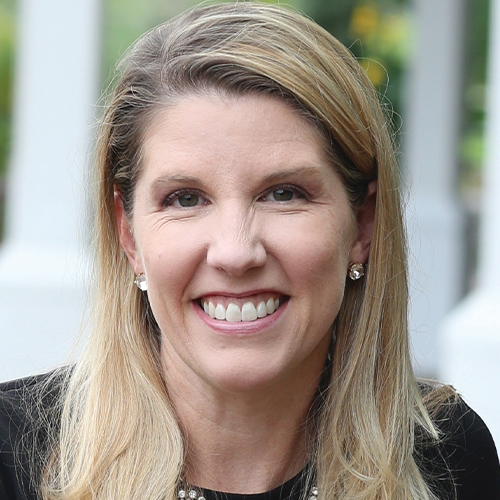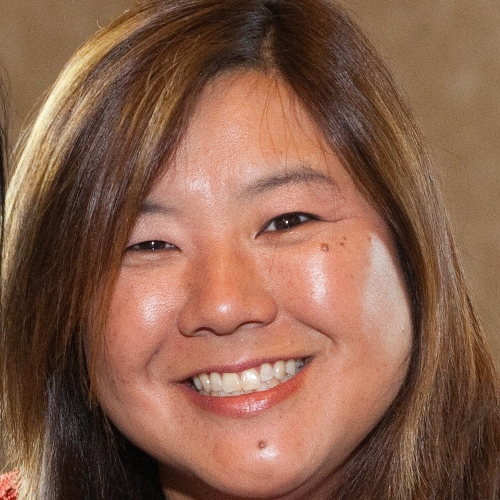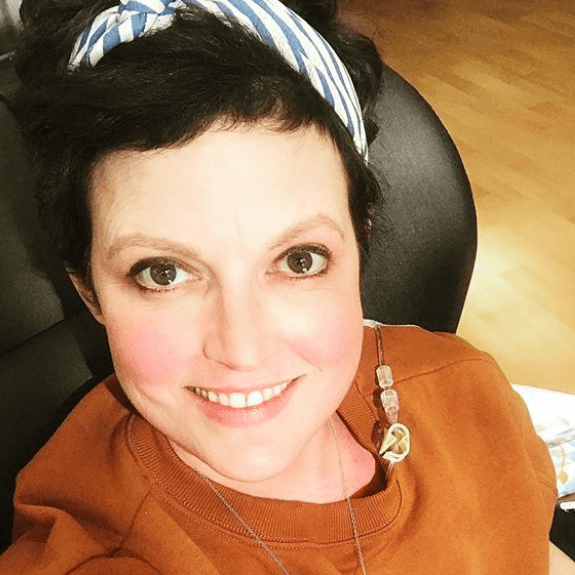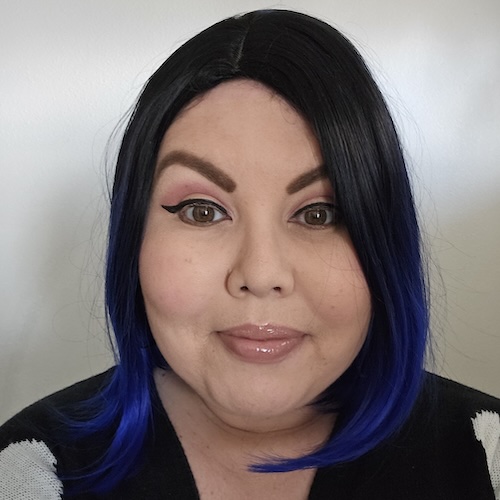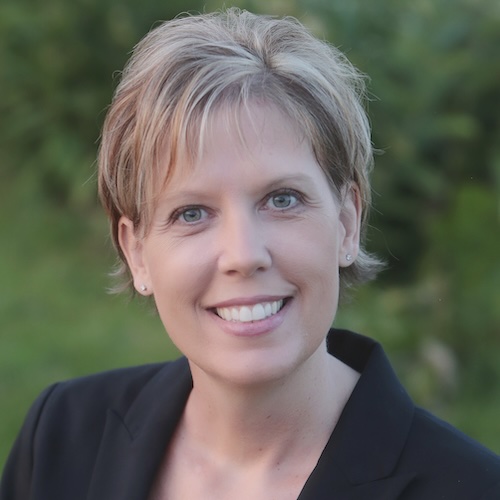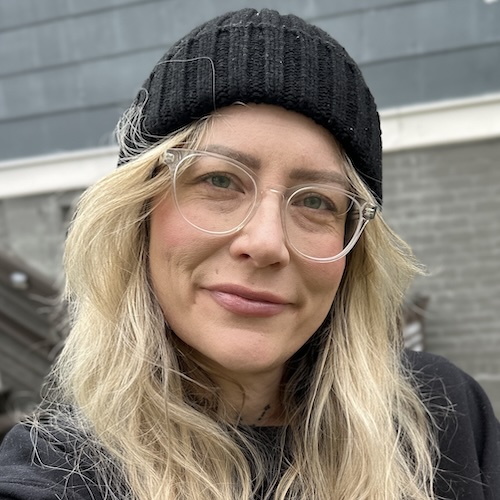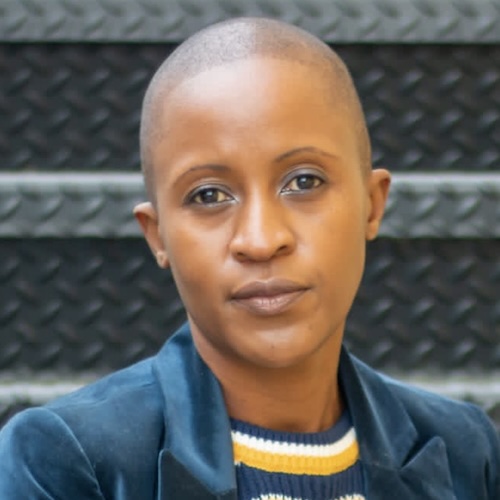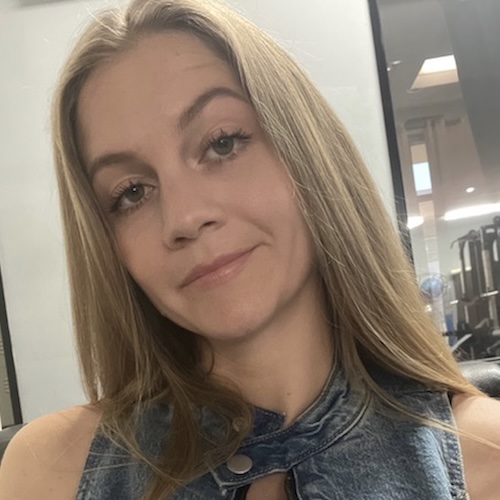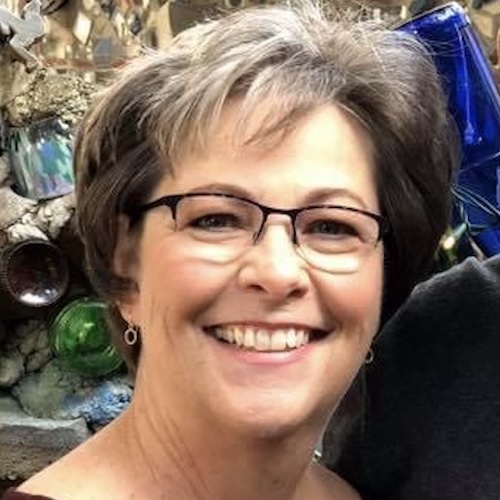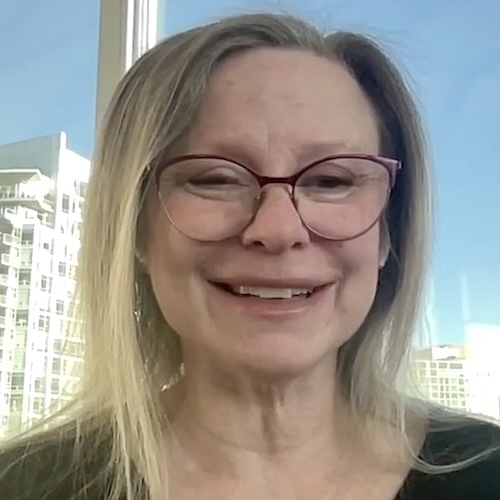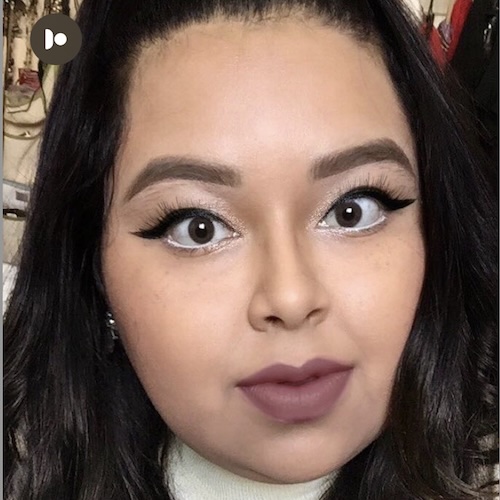Nikoo Navigates Stage 4 Lobular Breast Cancer with Targeted Therapy
When Nikoo’s general practitioner felt a small lump beneath her arm, the scans showed nothing unusual. Still, something didn’t sit right with her. She trusted her instincts and pressed for answers, which led to an early-stage diagnosis of lobular breast cancer in 2003. Over the next two decades, she maintained regular screenings and genetic testing and navigated her role as a scientist, wife, mother, and grandmother. All the while, her cancer remained undetectable by traditional imaging, until it returned.
Interviewed by: Nikki Murphy
Edited by: Chris Sanchez
Nikoo’s vigilance paid off in 2022 when she experienced gastrointestinal symptoms and food sensitivities. Her tests continued to prove inconclusive, but her sense that “something was off” again persisted. Self-advocacy led to further exploration, and ultimately, surgery intended to remove her ovaries revealed metastatic breast cancer that had already spread to her peritoneum. The shock was twofold: not only did Nikoo awaken with a port in her chest, but she was also told that her breast cancer had returned after 19 years. This reclassified her case as stage 4 lobular breast cancer.
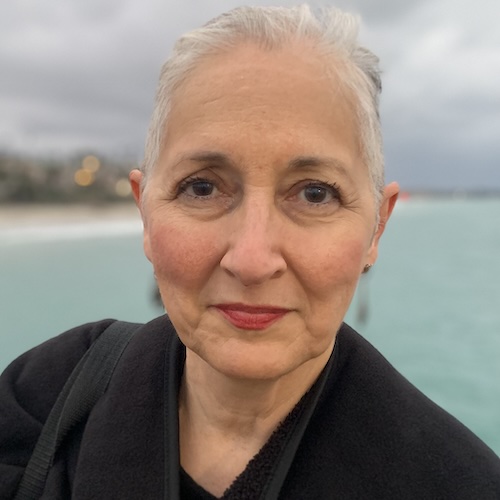
Never one to be passive, Nikoo deepened her involvement in the lobular breast cancer community, working with the Lobular Breast Cancer Alliance and speaking at medical conferences. Her advocacy focuses on the nuances of lobular cancer, particularly on how easily it evades detection, and underscores the importance of targeted therapies. After facing treatment challenges, including side effects, financial burdens, and rapid aging, Nikoo found empowerment through building a collaborative treatment relationship with a specialist who valued her input. The discovery that she had a PIK3CA mutation opened doors to clinical trials and underscored her belief that “knowledge is power.”
Nikoo’s lobular breast cancer experience has redefined survivorship for her. It is not just enduring, but supporting and thriving within a network of peers who understand the singular challenges of advanced cancer. She hopes for increased awareness, improved imaging, and changes in how the medical world understands and manages lobular breast cancer. Central to her advice is to trust one’s body and to seek community, because every patient’s story, including her own, can offer guidance and hope to others navigating their own lobular breast cancer experience.
Watch Nikoo’s video and read through her interview transcript to learn more about:
- How trusting one’s intuition, even when diagnostic tests are inconclusive, is vital in managing one’s own health
- Building a care team that respects and empowers patient voices
- Survivorship for stage 4 patients involves thriving, supporting each other, and reshaping what survivorship means for the community
- The impact of cancer, which isn’t only physical; financial pressures and emotional support systems also matter deeply
- This universal truth: Sharing patient stories builds hope and community, reminding us that knowledge and connection are as critical as medicine
- Name: Nikoo M.
- Diagnosis:
- Lobular Breast Cancer (Invasive Lobular Carcinoma (ILC))
- Staging:
- Stage 4
- Mutation:
- PIK3CA
- Symptoms:
- Gastrointestinal issues
- Food sensitivities
- Nausea
- Treatments:
- Targeted therapy
- Hormone therapy
This interview has been edited for clarity and length. This is not medical advice. Please consult with your healthcare provider to make informed treatment decisions.
The views and opinions expressed in this interview do not necessarily reflect those of The Patient Story.
- My name is Nikoo
- Navigating first signs and missed diagnoses
- Emotional reactions and family support
- Genetic testing and monitoring experience
- Years between diagnoses and persistent intuition
- Recurrence: navigating symptoms and second opinions
- Receiving the metastatic diagnosis
- Advocating for lobular breast cancer awareness
- Building a new care team and finding specialists
- Treatment decisions: CDK4 inhibitors and clinical trials
- Research, mutations, and targeted therapies
- Challenges of living with cancer: financial, physical, social
- Sources of support: my family and the metastatic cancer community
- Redefining survivorship in stage 4 cancer patients
- Hopes for the future of lobular breast cancer
- Advice for cancer patients: listen to your body
- The importance of sharing patient stories
My name is Nikoo
I have lobular breast cancer. I was diagnosed with stage 1 in 2003, and stage 4 in 2022. I live in California.
My husband Jim and I have been married for many years. We work together, live together, and do everything together. We have two sons, two daughters-in-law, and four grandchildren, ranging from four months old to seven years. We love being grandparents — it’s wonderful to spoil them and then send them back when they act up.
Navigating first signs and missed diagnoses
At age 42, I had a perfect mammogram, but my general practitioner felt something hard under my arm. Even though my scans were clear, a needle biopsy confirmed invasive lobular breast cancer that never showed up on my mammogram.
Emotional reactions and family support
My first reaction to the diagnosis was to hide it from my kids — I didn’t want it to affect them. Eventually, we talked as a family. Thank goodness for Jim; we had a running joke whenever I got emotional, he’d say, ‘soccer field’, just to help us smile and laugh through it.
Genetic testing and monitoring experience
I underwent genetic testing for BRCA1 and BRCA2, both were negative. The counselor found no cause for concern, so I thought it was just a fluke. Still, because I’d been a scientist in my past life, I continued annual monitoring. Nothing ever showed up.
Years between diagnoses and persistent intuition
I always felt the cancer was somewhere in my body, even if I had no symptoms. I maintained a relationship with an oncologist, always did my screenings — again, nothing appeared until 2022.
Recurrence: navigating symptoms and second opinions
In 2022, I developed GI issues and food sensitivities. Despite clear colonoscopy and endoscopy results, I knew something was wrong. I advocated for myself and had several scans and biopsies. Only after surgery to remove my ovaries did they discover that breast cancer had spread everywhere, covering my peritoneum.
Receiving the metastatic diagnosis
I woke from surgery expecting my ovaries to be gone, but instead found a port in my chest. That was the first shock. Later, the oncologist called — ‘The good news is you don’t have ovarian cancer. The bad news is your breast cancer of 19 years earlier has returned.’ I knew I needed different care.”
Advocating for lobular breast cancer awareness
As the diagnosis unfolded, I became active with the Lobular Breast Cancer Alliance and shared my story nationally to help others. I’ve spoken at conferences alongside leading oncologists to raise awareness about how easily lobular breast cancer is missed by imaging.
Building a new care team and finding specialists
Finding the right oncologist changed everything. She included me in treatment decisions and respected my input. I’ve been with her for two and a half years and have become deeply involved in advocacy and research.
Treatment decisions: CDK4 inhibitors and clinical trials
I started with a CDK4 inhibitor, the current gold standard. When my first oncologist didn’t know about liquid biopsies or PET scans, I sought a specialist who did. When CDK4 failed, my doctor quickly switched to the next appropriate therapy and got me into a clinical trial. The side effects are tough but manageable.
Research, mutations, and targeted therapies
I’m a researcher at heart. When I found out I had a PI3K mutation, I wasn’t surprised, but was relieved that there are drugs that can target it. I mentor other patients, reminding them that knowledge is power and targeted therapy is the future.
Challenges of living with cancer: financial, physical, social
One challenge no one talks about is financial toxicity. Even for us, handling thousands in unexpected bills was overwhelming. Cancer ages you quickly; within six months, I felt I’d aged a decade. Hormone blockers caused weight gain and rapid changes, which were hard to accept.
Sources of support: my family and the metastatic cancer community
Beyond my husband and family, the metastatic cancer community is incredible. We understand each other and are always there for one another.
Redefining survivorship in stage 4 cancer patients
Survivorship is a tricky word for metastatic patients. At a recent marathon, there was no mention of us. Survivorship means supporting others on the same path, being involved, and thriving —not just surviving.
Hopes for the future of lobular breast cancer
My biggest hope is more understanding of lobular breast cancer. Too few clinical trials exist. Too many patients are diagnosed late. We’re trying to spread the word and educate oncologists nationwide.
Advice for cancer patients: listen to your body
Trust your body. There’s no way I’d be here three years post-diagnosis if I hadn’t trusted my instincts. Symptoms were being disregarded. Women especially need to act when something feels off.
The importance of sharing patient stories
When I was diagnosed, I searched for other people’s stories — those stories gave me hope. Sharing experiences is vital.

Inspired by Nikoo's story?
Share your story, too!
More Breast Cancer Stories
Erica C., DCIS, Stage 0
Symptoms: Indeterminate calcifications found on a routine mammogram
Treatment: Double mastectomy
Margaret A., IDC & DCIS, Stage 2B
Symptoms: Pain in left breast, left nipple inverting
Treatments: Double mastectomy, chemotherapy (AC-T), radiation
Alison R., Partially Differentiated DCIS, Stage 4 Metastatic
Symptom: Lump in underarm/breast
Treatments: Chemotherapy, surgery, radiation, targeted therapy
Deb O., Breast Cancer (De Novo Triple Positive and ER+ HER-)
Symptoms: First instance: appearance of lump that later on increased in size, orange peel-like skin around inverted nipple, persistent ache under right arm; second instance: appearance of lump
Treatments: First instance: chemotherapy, targeted therapy, hormone therapy; second instance: surgery (mastectomy), chemotherapy, radiation therapy, CDK 4/6 inhibitor
Tammy U., Metastatic Breast Cancer, Stage 4
Symptoms: Severe back pain, right hip pain, left leg pain
Treatments: Surgeries (mastectomy, hip arthroplasty), chemotherapy, radiation therapy, hormone therapy, targeted therapies (CDK4/6 inhibitor, antibody-drug conjugate)
Nicole B., Triple-Negative Metastatic Breast Cancer, Stage 4 (Metastatic)
Symptoms: Appearance of lumps in breast and liver, electric shock-like sensations in breast, fatigue
Treatments: Chemotherapy, surgeries (installation of chemotherapy port, mastectomy with flat aesthetic closure), targeted therapy (antibody-drug conjugate), hyperbaric oxygen therapy, lymphatic drainage
Dalitso N., IDC, Stage 4, HER+
Symptoms: Appearance of large tumor in left breast, severe back and body pain
Treatments: Surgery (hysterectomy), vertebroplasty, radiation therapy, hormone therapy, clinical trial
Marissa T., ILC, Stage 4, BRCA2+
Symptoms: Appearance of lump in right breast, significant fatigue, hot flashes at night, leg restlessness leading to sudden, unexpected leg muscle cramps
Treatments: Chemotherapy, hormone therapy, PARP inhibitor, integrative medicine
Janice C., Triple-Negative Metastatic Breast Cancer, Stage 4
Symptoms: Appearance of lump in left breast near sternum, fatigue, bone and joint pain
Treatments: Surgery (lumpectomy), radiation therapy (brachytherapy), chemotherapy
Dana S., IDC, Stage 4 (Metastatic)
Symptom: Appearance of large lump in left armpit
Treatments: Targeted therapy, hormone blockers, bone infusions
Maria S., Breast Cancer, Stage 4
Symptoms: Intermittent but severe pain including a burning sensation on the side of the breast, appearance of a cyst and a lump, abnormally warm and pink-colored breast, nipple inversion, strangely liquid menstrual periods, unusual underarm odor, darkening and dimpling of the nipple, severe fatigue, night sweats
Treatments: Chemotherapy, surgeries (mastectomy, lymphadenectomy), radiation therapy, targeted therapy
- 1
- 2
